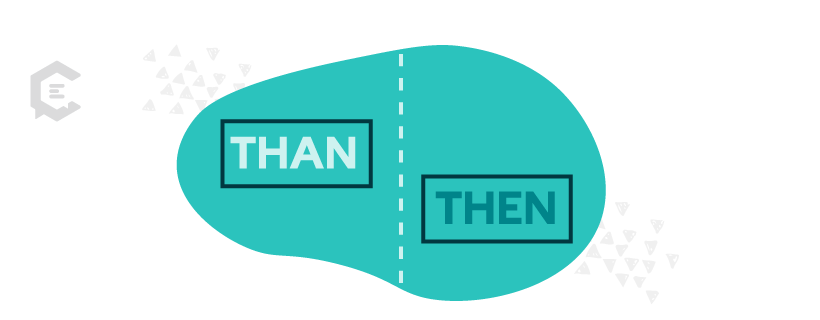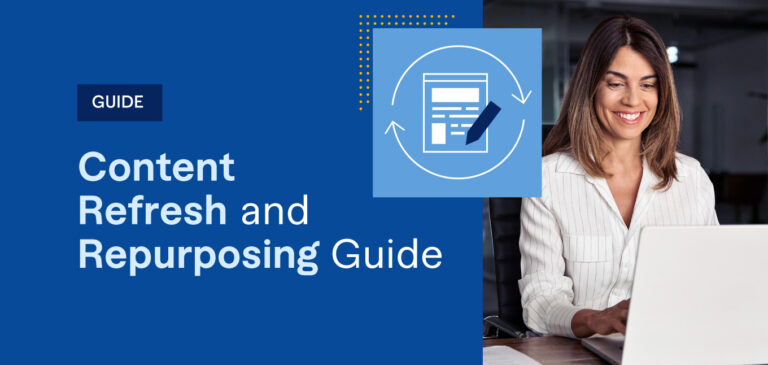You’ve probably realized by now that American English is an odd language. It is filled with words that are similar, words that sound alike, and words that have the same spelling but mean different things. Consider than or then — two words used regularly in communications that often get mixed up.
As a business owner, you write all the time — web copy, blog posts, social posts, customer service messages, presentations, and even just emails to colleagues, employees, investors, and customers.
Knowing basic grammar is a crucial component because it makes you seem more professional, credible, and polished.

Than or then: What’s the difference?
If it’s any consolation, you aren’t the only one to be frustrated by than and then. For one thing, they look alike and sound alike. And, from a historic perspective, it wasn’t that long ago when they were treated alike in Middle English.
However, we don’t speak or write Middle English anymore. Plus, there are differences when it comes to using “than” and “then.”
- Then is used with time-related topics. Think “just then,” “back then,” or “every now and then.”
- Than slips in when demonstrating comparisons. Examples might include “smoother than,” stronger than,” or “further than.”
Digging deeper into than and then grammar rules
The above scenarios aren’t the only times when you’d use than or then. Think quid pro quo.
“Than” can be used to specify an amount that is above or below a certain level. It is also useful for suggesting one possibility or solution that might be preferable to another.
For example:
- “He shouldn’t have to wait more than 24 hours to see a doctor for his illness.”
- “Her comment was more sarcastic than well-meaning.”
Then again (see what I did?), then IS an adverb, which can be used under the following conditions.
- Subsequently. “Go to the corner, then take a right.”
- Consequently. “If you had brushed your teeth properly, then you wouldn’t have gotten cavities.”
A grammar trick to remember the difference
So, how to remember these two words? “then” and “than” can trip up even the savviest of people. Than is used for comparisons; both boast the letter “a.” And, then and time both have the letter “e.”
Let ClearVoice help you create polished and professional content that attracts your target audience. Talk to a content specialist to learn more.




